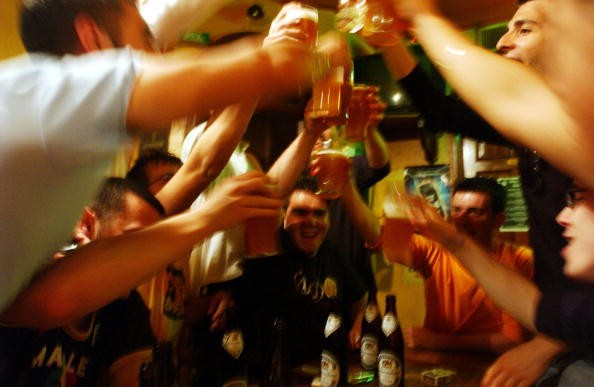
About 30% of 15-year-olds in the United Kingdom say they have drunk alcohol to the point where they blacked out. By age 19, nearly 3 in 4 say they have blacked out due to alcohol. Only about 5% of U.K. teens surveyed said they had never experienced a blackout.
"Blackout is associated with pretty severe intoxication," Dr. Marc Schuckit told Reuters Health. He is lead author of the study of British youth and is with the Department of Psychiatry at the University of California, San Diego. A blackout generally occurs when the blood alcohol level is about twice what would meet the legal definition of being drunk, he said.
A joint American and British study surveyed more than 1,400 British teens about their drinking at age 15 and then again at ages 16, 18, and 19. The researchers asked the teens if they had ever drunk alcohol to the point where they could not remember what happened on the next day.
There were four distinct patterns of drinking noted by the study. About 5% of teens did not report any blackouts. For about 30%, the number of blackouts increased rapidly as the teens got older. In about 45% the blackouts increased slowly as the teens got older. In about 20%, the number of blackouts stayed steady with age.
More girls than boys reported drinking to the point of blackout. The study also found that smoking, having fewer inhibitions, and having more friends thought to be drinking and using drugs were all associated with an increased number of blackouts.
The legal limit for blood alcohol levels for driving in most U.S. states is 0.08%. In most European countries, the legal limit is 0.05%. In England and Wales, the legal blood alcohol concentration for driving is 80 micrograms per 100 milliliters of blood. In Scotland, it is 50 micrograms per 100 milliliters of blood.
The study was conducted by the University of California, San Diego; the University of Bristol in the UK, and Virginia Commonwealth University in Richmond, VA. It was published in the journal Alcoholism Clinical and Experimental Research.



